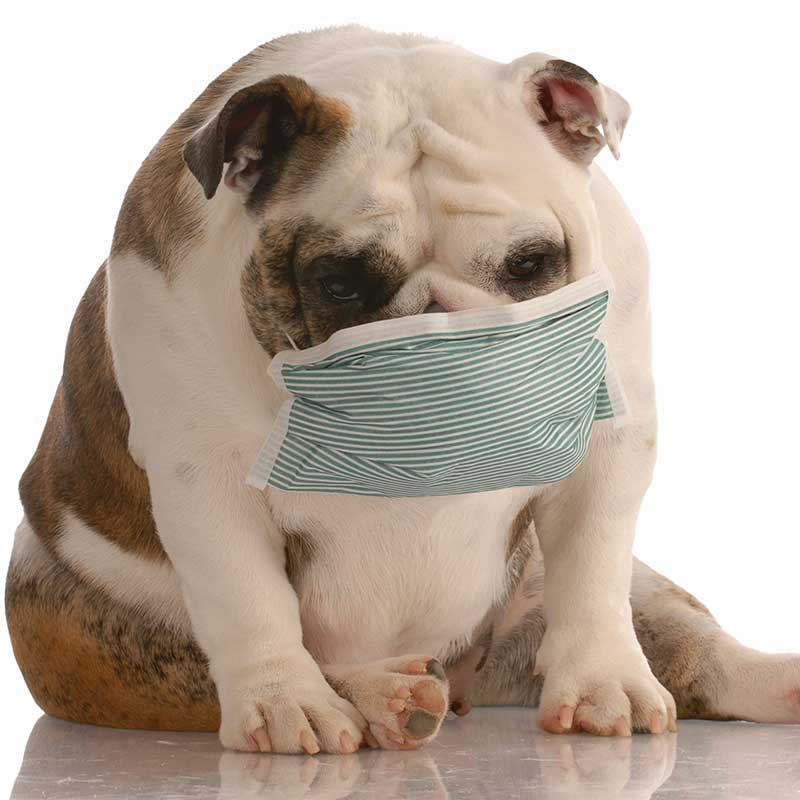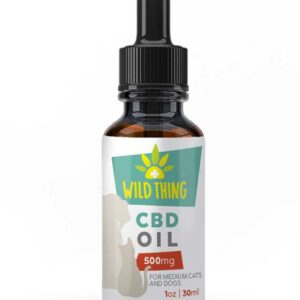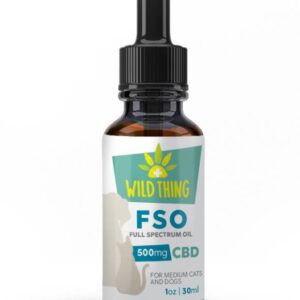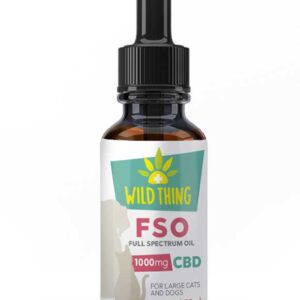It’s that time of year again. Time to talk about flu season and vaccinations, but this time it’s for our pets. Strangely enough, Canine influenza or as it is commonly referred to, “dog flu” is a relatively new ailment to afflict our pooches. It acts somewhat like, but not identical to, the human flu virus and can leave our furry family members feeling not so well for a span of about two to three weeks. Seeing our fur-babies in pain or unwell is never something we like to see and when we do, we explore any option we can to put an end to their pain. Luckily there are some steps that can be taken to alleviate this illness and, sometimes, prevent it entirely.
Are there dog flu vaccine side effects? What are the myths vs the fact on canine influenza vaccine side effects? Can giving your dog the flu shot have side effects? This article will explore the history of canine influenza, its symptoms, whether or not your dog needs to be vaccinated, and what potential dog flu vaccine side effects there might be for your four-legged friends.
What is Canine Influenza and Where Did It Come From?

Believe it or not, canine flu is actually a rather new illness. The first cases of it were reported in racing Greyhounds from Florida back in 2004. A second variant began affecting more dogs in 2015. Due to how new dog flu is, our pets have not had time to develop any natural immunity to this sickness. Canine Influenza or “Dog flu” came to be in a rather strange way and exists in two different forms. The first, H3N8, originated in horses and managed to spread to dogs in a way science is yet to discover. Another type of the virus is said to have originated from a bird virus and, over time, evolved to affect the canine species. This version of the flu is known as H3N2. Like we mentioned before about our dogs not having the time to develop a natural immunity to the disease, that means that roughly 80% of dogs that come into contact with the virus will begin showing symptoms. It’s imperative that you are able to identify these symptoms or, if capable and it makes sense doing so, you vaccinate your pet to help them avoid contracting it.
Whenever you talk about vaccines there are going to be some people that are concerned about the potential for dog flu shot side effects, let alone the canine influenza side effects themselves. Animal health is not as developed as our own, but the science is certainly clear in that there is a lot of thorough testing, research and development that goes into preventing canine influenza vaccine side effects. Flu shots for dogs have little to no side effects on average, but there can be outliers who experience rare canine flu vaccine side effects. Nevertheless, the occurrence of these kinds of after effects are very rare and might not be related to side effects of the dog flu shot at all. As always, if you’re concerned about dog flu vaccine side effects, it’s best to talk to your vet as they’re the most trustworthy authority on these matters.
What Are The Symptoms of Dog Flu?

Normally if you are showing symptoms of the flu, you’ve missed the boat for being immunized against catching the virus. Dog flu works a little differently. The vaccines themselves don’t prevent it, but actually help to alleviate the symptoms and lessen the amount of time your dog will suffer from the illness. It’s important to identify the symptoms of the dog flu as early as possible so you can cut off contact between your dog and others to avoid the spread of the virus. Because the canine influenza deals with side effects of the flu and not the actual prevention of it, some might wonder how effective/efficient it is? Well, if you are in-tune with your pooch and their health cues, or you’re aware of what might be going around your canine community, you can utilize the dog flu vaccine without side effects.
The most common symptoms of dog flu are:
- A Moist or Dry Cough
- Sneezing
- Runny Nose
- Purulent Nasal Discharge
- Runny Eyes
- Fever
- Lethargy
- Difficulty Breathing
As you can see, the symptoms of the dog flu are actually quite similar to that of the human virus. Just like with the flu in humans, being on top of it is important. If left unchecked, canine flu could work it’s way into their lungs and cause pneumonia which, if left untreated, can lead to death.
Is There A Vaccine Available?

Luckily there is a vaccine for the canine influenza virus or CIV, but it’s not administered in the way a human vaccine is. When we get our vaccines, we get them between the months of December to February, also known as “Flu Season”. We do this to not only protect ourselves, but others who may have a higher chance of contracting the virus. It’s often referred to as “Herd Immunity”, where a virus spreads much slower, or not at all, if enough people are protected against it. The dog flu vaccine is slightly different. It is only recommended as a “lifestyle vaccine” that usually only applies to dogs in social settings, but more on that later.
Common questions about canine influenza:
- Are there any dog flu shot side effects?
- What are the potential canine influenza vaccine side effects?
- Can the canine influenza vaccine have side effects on older dogs vs puppies?
- What are the most common flu shot for dogs side effects?
- If your pet experiences dog flu vaccine side effects, what should you do?
What Are The Canine Influenza Vaccine Side Effects?

The side effects of the dog flu vaccine are relatively low and uncommon. Think of when you get your flu shot – you might feel a little “off” or, sometimes, even show light signs of the flu itself. The dog flu shot acts in a similar way. While canine influenza side effects are low, they can occur in smaller dog breeds and usually present themselves as:
- Fever
- Vomiting
- Diarrhea
- Respiratory distress
- Facial swelling
- Pale Gums
- Pain at the site of injection
There are a lot of similarities between how we react to a flu vaccination and how our pets do. In general, a flu vaccine is just the injection of dead or inert flu cells into the body so that our, or our pets, immune system can develop the necessary components to fight off Staph infection. The main difference is that our flu shots are to prevent the virus, our pets are to lessen its impact. The canine flu vaccine side effects are not serious and rather uncommon. The benefit of giving it to your pet, mainly, is to shorten the period of time your dog is sick from 2-3 weeks to less. Lots of research still needs to be done on this topic, however. The fact that CIV has only been documented since 2004 means that there is still much that needs to be done in the form of research and testing.
Does Your Dog Need The Dog Flu Vaccine?

The short answer is: It depends. The dog flu vaccine isn’t administered to create herd immunity, rather to shorten the dog flu symptoms. Whether or not you should vaccinate your dog is completely up to you as the owner. If you are unsure you can ask yourself a few simple questions about your dog’s habits and if the vaccine is a viable option. If your dog is often in social settings like doggy-daycare or a crowded park, it’s a good idea to make sure they get vaccinated. It’s a virus after all and spreads through contact. Dogs love making contact. Wrestling, playing or even saying hello in their way could cause the virus to spread. So if you are a social dog owner with a social dog, making sure your pet is immunized is likely a good plan. Prepare properly though. Veterinarians usually don’t overstock the vaccine and to save yourself from running into issues of not having it in time, call ahead. Inform your vet that you are interested in the vaccine so they can inform you of everything you need to know and ensure they’re stocked.
If you’re concerned about dog flu shot side effects, or you have questions about your own dog experiencing suspected canine influenza vaccine side effects, don’t hesitate to talk to your veterinarian. The best way to avoid the dog flu is to be proactive & informed, so never be shy to ask questions from your local canine health professionals.
Conclusion

The side effects of the canine flu vaccine are limited and non-severe. The onus is on the owner to understand what the dog flu is, its symptoms and whether or not their lifestyle calls for it. Whether your dog gets the dog flu vaccine is completely up to you. It’s not imperative for your dog to receive a vaccination every year, but you should always keep an eye on them to ensure they’re as healthy as possible. Consult your vet and ask the necessary questions. Education, like anything else in life, is key. Keep an eye on your dog after a social gathering and if they do contract the virus, you can always alleviate lots of their symptoms with Wild Thing Pets CBD products. CBD won’t cure your pet’s flu, but it will assist with the symptoms of nausea and pain that they may develop after becoming afflicted with the virus.
Frequently Asked Questions (FAQ)
How long do dog flu vaccine side effects last?
Not long. While the canine flu can last for up to 3 weeks, the effects or symptoms of the dog flu vaccine usually appear and disappear after a day or two.
Are flu shots safe for dogs?
Yes. The canine influenza vaccine is considered generally safe. Research on the topic, however, is limited. The canine flu has only been around for a handful of years as science continues to learn about this virus the ways to combat it and possibly exterminate it entirely.
What are the dog flu shot side effects?
The side effects of the dog flu vaccine are similar to a lighter version of the flu itself. While uncommon, dogs who have received the vaccination can show side effects like lethargy, vomiting, diarrhea and pain near and around the injection site.
Want to Learn More?
Download our AILMENT GUIDE NOW.
PLUS! all FIRST TIME buyers get 50% off their additional order. Visit verlota.com to get your discount code.








